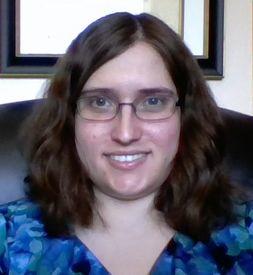Aria scale or other body fat % scale

AverageJoeFit
Posts: 251 Member
Hi all.
I know Hossa uses one, but IL wondering about anyone else using body fat % scales. Do you think they work?
I have read a lot of reviews of scales that measure body fat % and thier accuracy is questionable.
So the other question I have is, is more information better even if it might be inaccurate or no information at all better?
thanks
I know Hossa uses one, but IL wondering about anyone else using body fat % scales. Do you think they work?
I have read a lot of reviews of scales that measure body fat % and thier accuracy is questionable.
So the other question I have is, is more information better even if it might be inaccurate or no information at all better?
thanks
0
Replies
-
All body fat scales or handheld devices work using BIA body impedance analysis- basically analyzing the speed with which an electronic impulse runs through your body. The tech itself, regardless of the company that made the device, is error prone as many variables can influence the results especially water intake.I have one of the more accurate devices on the market and it thinks I am at 6% bf when I am probably above 15.
I would say that these devices may be more valuable to monitor changes in bf rather than get an accurate read on your body fat
0 -
What Yisrael said. :-) I do use one. I just don't pay that much attention to all the peripherals... I just check for changes.0
-
These are awesome points. I use mine to see big picture tends rather than to run around touting some percent it spits out at me.0
-
Almost every metric you measure has some degree of inaccuracy. Calories burned is a great example of this, as every app/software program uses a different algorithm.
Even the scale can lie, as there are so many variables that can throw your weight 5 pounds in either direction. This is why I'm a big advocate of daily weights under identical conditions (for me just got out of bed, used the can, and nothing on). Like it's been said above, trends are more telling than any individual measurement.
That said, I've had some absurd inaccuracies using BF scales and other BF impedance devices. I'm a strong advocate of using calipers. There is some trial and error until you get the hang of it, but once you do I think they're a more reliable tool.
Here's the one I've been using. I like it because unlike some calipers, you aren't wondering how hard to squeeze, the spring takes care of it for you. Note it's pretty large, and requires another person to help you, but hey, it's all about transparency and no judgement at this point, right?
http://www.amazon.com/Creative-Health-6575XXXX-Skinfold-Caliper/dp/B000NN9SDO/ref=sr_1_2_a_it?ie=UTF8&qid=1459862764&sr=8-2&keywords=slim+guide+skin+fold+caliper
I recommend using a 7 point system instead of a 3 point system, as it's reputed to be much more accurate. There are plenty of calculators out there, here's the one I'm using:
http://www.free-online-calculator-use.com/skin-fold-test.html
OK, so this is obviously more time consuming than standing on a scale, but it's also much cheaper, and in my opinion more reliable. My wife and I typically measure each other weekly. It takes about 5-10 minutes total for both of us. Just my .02. Have a great day, everyone!0 -
I measure my body fat with a Tanita scale about once every two weeks. The percentage had been slowly going down as I'd expect with losing weight. I've read that the accuracy varies depending on how much body fat you have. After you get below a certain point they may be less accurate.
My scale also measures body water percentage. I find this helpful to make sure I stay hydrated.
Tanita is the brand they used at the medical weight management program I went to. They had a fancy one with handles to hold for better accuracy and more information. Mine, which doesn't have handles, gave similar readings but less information.0
This discussion has been closed.




